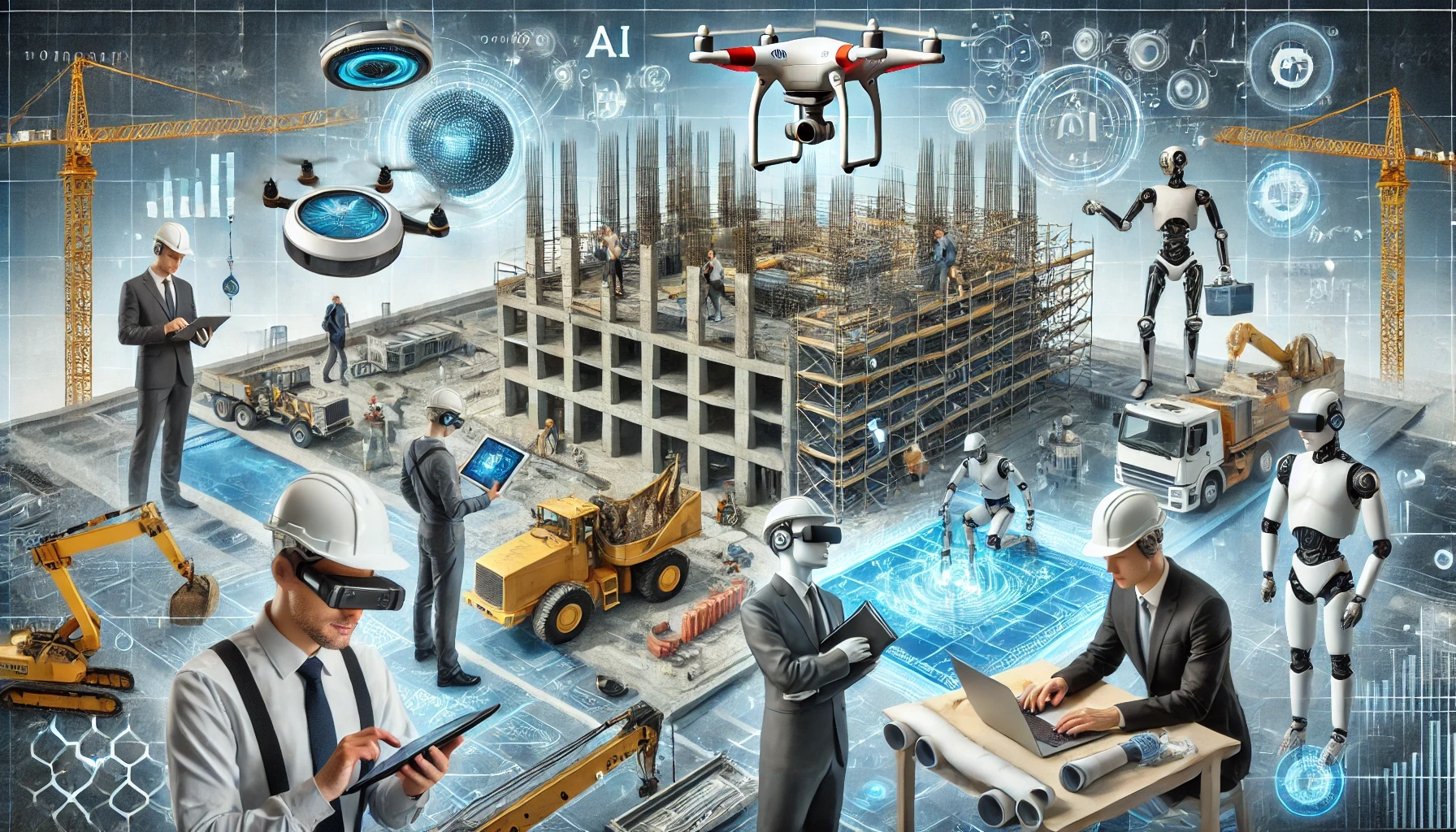Insight
Rethinking Digital Transformation in Construction: The Rise of AI Agents
The construction industry stands at a pivotal moment in its digital evolution. But what if we've been solving the wrong problem all along?
Nov 11, 2024
The construction industry stands at a pivotal moment in its digital evolution. For years, we've followed a well-worn path: investing millions in software consolidation, implementing real-time reporting systems, standardising processes, and obsessing over user experience improvements. The underlying assumption? That making systems more user-friendly would naturally lead to increased productivity.
But what if we've been solving the wrong problem all along?
The Traffic Jam Effect in Construction
Consider a typical traffic jam on a busy highway. Research shows that many major traffic snarls don't start with accidents or road works – they begin with a single driver tapping their brakes. This small action creates a ripple effect, causing each subsequent driver to brake slightly harder than the one before, eventually bringing traffic to a standstill.
This same phenomenon plays out daily in construction projects worldwide, albeit in a different form. Every time a project manager needs to manually input data, every instance where a site supervisor must update multiple systems, every moment spent processing routine documents – these small "brake taps" in our workflows accumulate into massive productivity slowdowns.
The Limitations of Traditional Digital Transformation
Traditional digital transformation efforts have focused on making these "brake taps" less painful:
We've consolidated software to reduce the number of systems users need to navigate
We've implemented real-time reporting to improve visibility
We've standardised processes to create consistency
We've invested heavily in user interfaces to make systems more intuitive
While these improvements have yielded benefits, they still rely on human intervention for routine tasks. It's like creating a more ergonomic brake pedal – helpful, but not addressing the fundamental issue.
Enter AI Agents: The Paradigm Shift
The next wave of digital transformation isn't about making software more user-friendly – it's about removing the user entirely from routine tasks. AI agents represent a fundamental shift in how we approach construction technology. These aren't simple automation tools or static algorithms; they're sophisticated digital workers capable of learning, adapting, and making decisions within defined parameters.
What Makes AI Agents Different?
Unlike traditional automation tools, AI agents can:
Exercise Contextual Judgment
Assess RFI urgency based on project impact and historical patterns
Evaluate safety reports using multiple criteria and project context
Make nuanced decisions about resource allocation
Learn and Adapt
Improve their decision-making based on project outcomes
Identify patterns in project data that humans might miss
Adjust their strategies based on changing project conditions
Manage Complex Workflows
Coordinate multiple systems and processes simultaneously
Handle exceptions based on learned rules and patterns
Escalate issues appropriately when human intervention is needed
The Graduate Analogy
Think of AI agents as highly trained graduates who've just joined your team. Initially, you provide them with clear guidelines and oversight. As they prove their capability with routine tasks, you gradually trust them with more complex decisions. They know when to handle matters independently and when to escalate to senior team members.
These digital workers excel at:
Processing and categorising incoming documents based on content and urgency
Monitoring project schedules for potential conflicts and dependencies
Analysing cost data for anomalies and trends
Managing document reviews based on contractual deadlines and project priorities
Coordinating communications between different project stakeholders
The 80/20 Principle in Action
The beauty of AI agents lies in their ability to handle the 80% of decisions that follow predictable patterns, freeing human experts to focus on the 20% that require deeper expertise, creativity, and strategic thinking. This isn't about replacing human judgment – it's about augmenting it by removing the cognitive load of routine tasks.
Looking Forward: From Reactive to Proactive
Traditional digital transformation efforts have focused on answering the question "What happened?" AI agents help us move beyond this to answer more valuable questions:
What needs attention right now?
Why is this important?
What are the potential implications?
What actions should we consider?
The Path Forward
As we enter this new era of digital transformation, construction companies need to shift their thinking from "How can we make our systems easier to use?" to "How can we remove the need for human interaction in routine tasks?"
This shift requires:
Identifying processes that follow consistent patterns
Defining clear parameters for AI decision-making
Establishing escalation protocols for exceptional cases
Developing metrics to measure AI agent performance
Creating frameworks for continuous learning and improvement
The future of construction productivity isn't about creating better interfaces for humans to interact with software. It's about developing intelligent digital workers that can handle routine tasks independently, allowing human experts to focus on what they do best: solving complex problems, managing relationships, and making strategic decisions.
The question isn't whether AI agents will transform construction – it's whether your organisation is ready to embrace this transformation.
